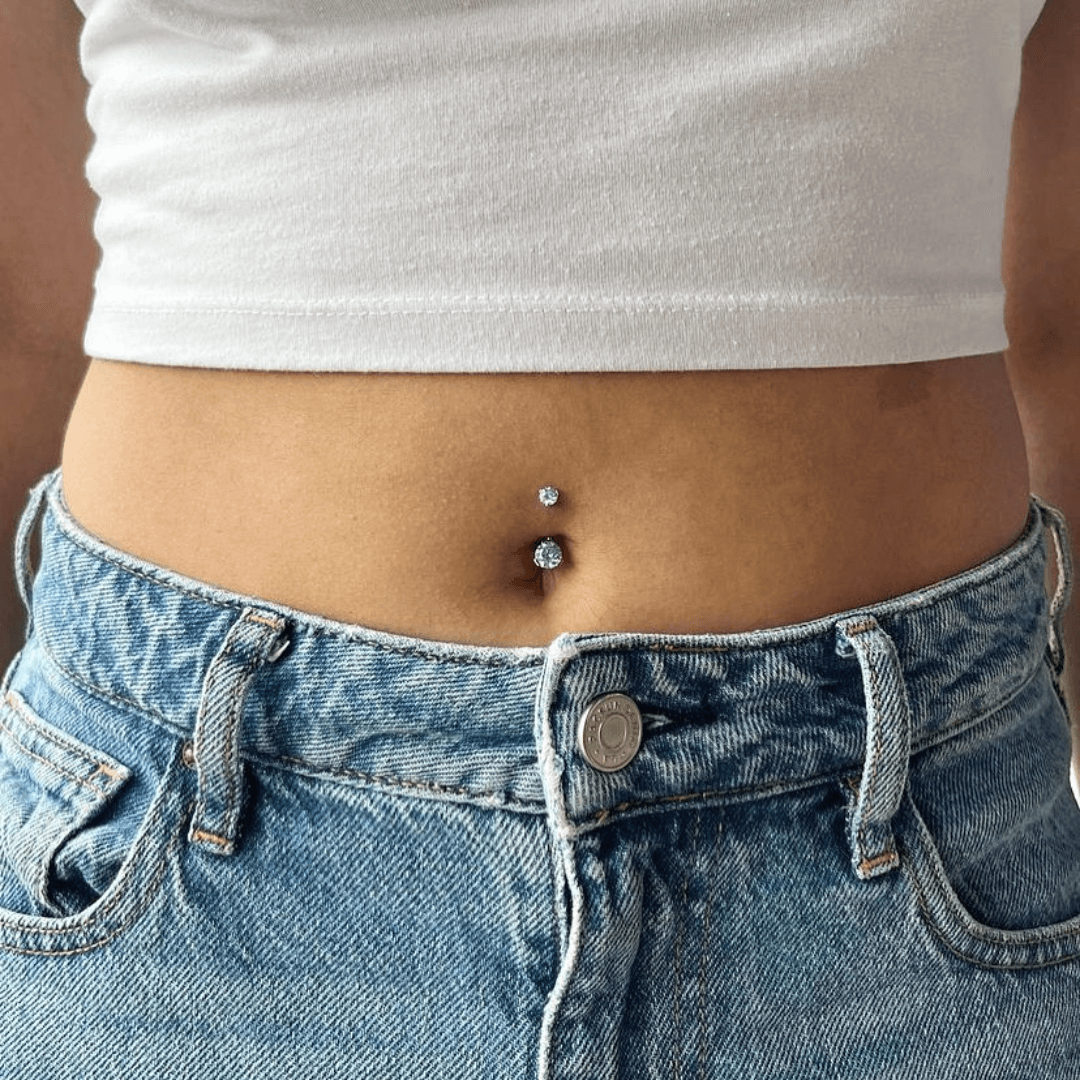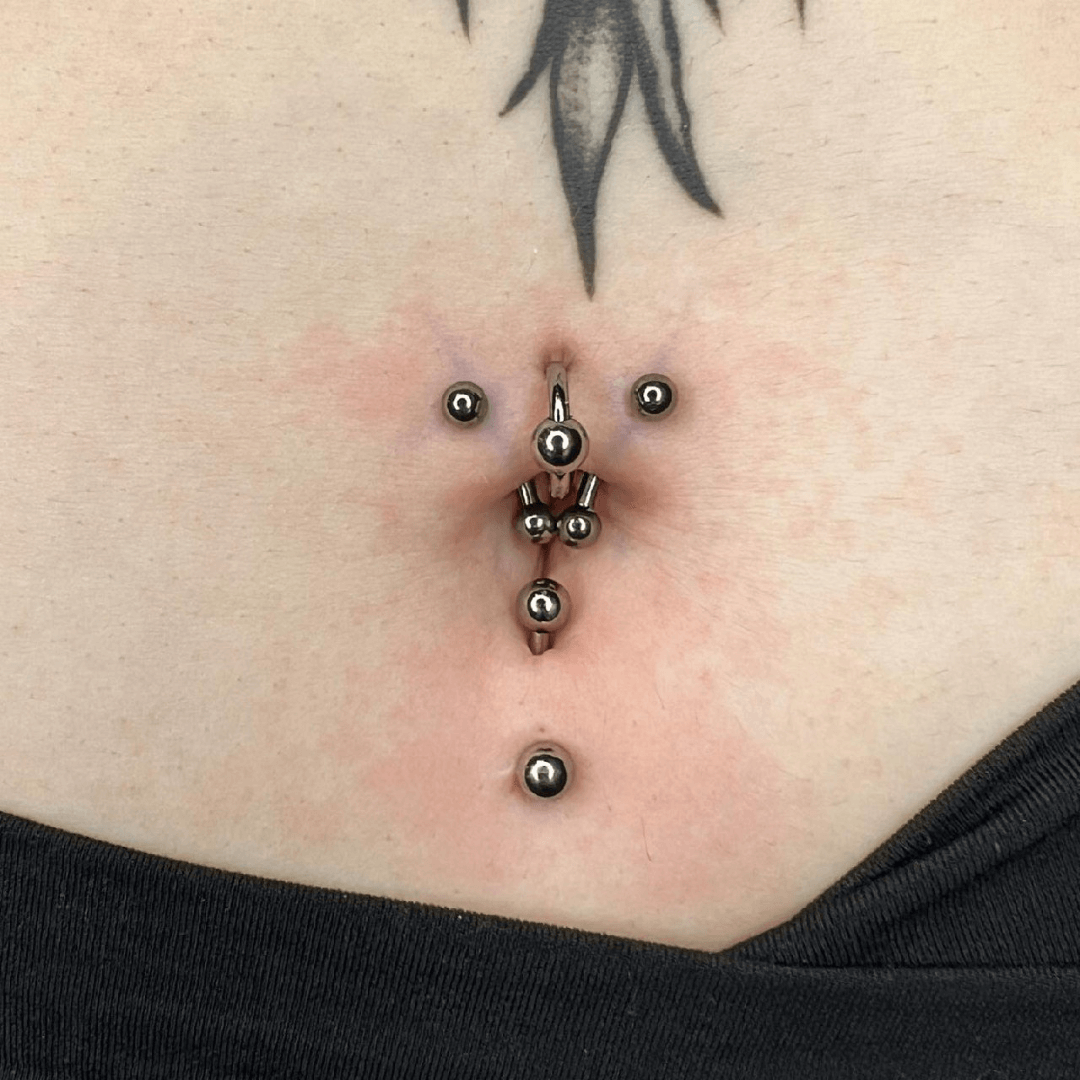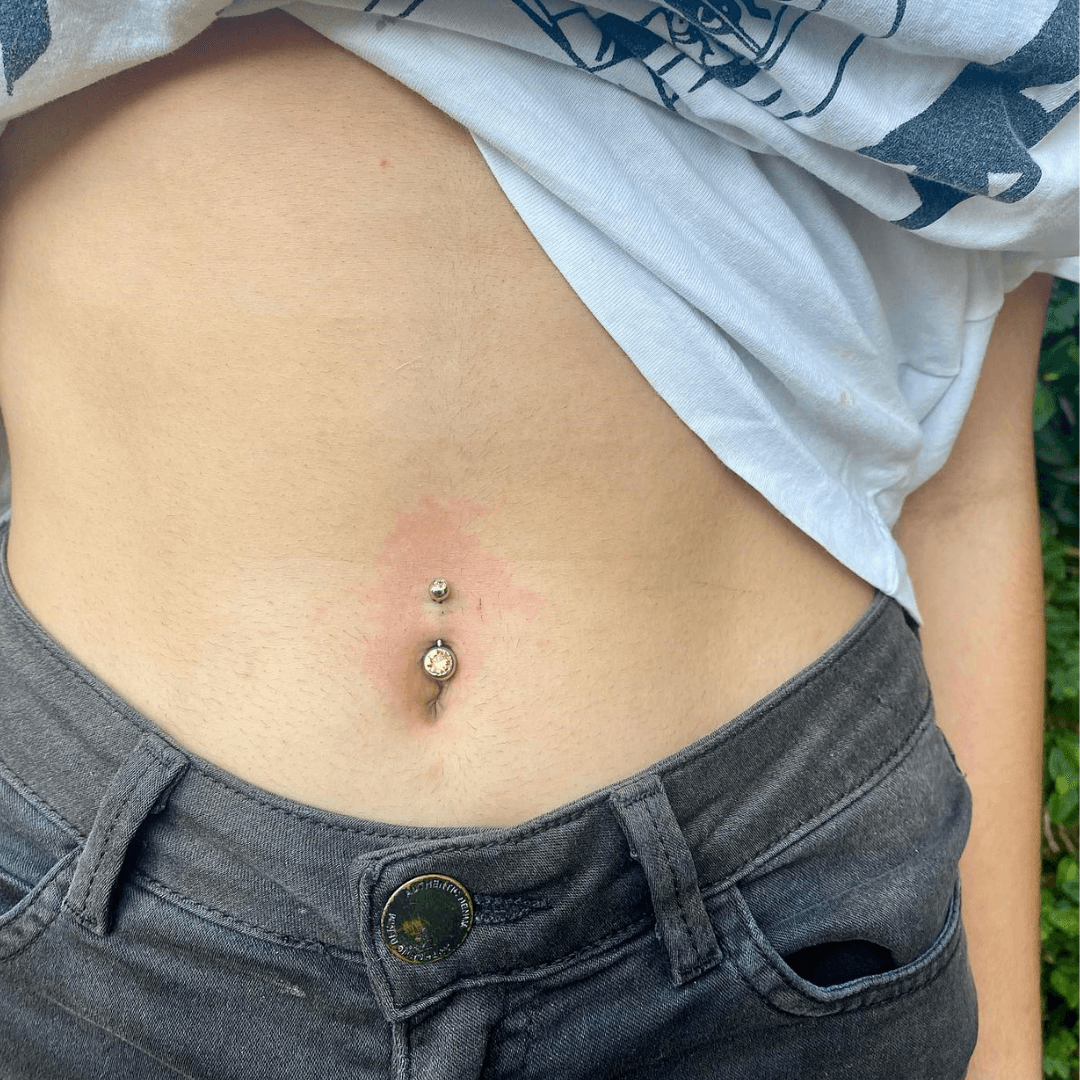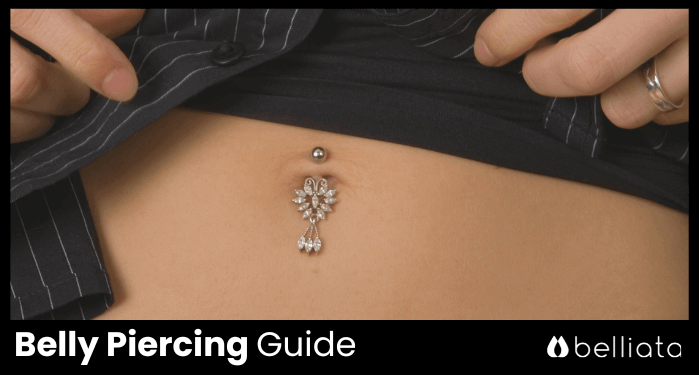Belly Piercing 2026 Guide: Cost, Pain Level, and Placement Options
Posted on Oct 23, 2023
Embarking on a new facial or body piercing is a significant choice. While piercing is typically less permanent than getting a tattoo, there are still numerous factors to weigh when preparing to see a professional piercer. Explore our comprehensive guide designed to assist you in getting underway.
What Is Belly Piercing?
"Piercing" encompasses a wide array of techniques, jewelry types, materials, and specific body locations. While many are familiar with the procedures for ear or nose piercings, there has been a surge in popularity for body piercings in recent times.
The precise process hinges on the selected piercing, but typically entails proficient piercers using a sterile needle to create a small opening in the skin of your face, body, or earlobe. They then insert an earring, stud, barbell, or ring. Following this, you'll receive tailored care instructions and products designed to prevent infection and facilitate the healing process.
Types Of Belly Piercing
Also called navel piercings, it’s common to see people wearing a ring or barbell in their belly button. This is often one of the first piercings that many people get.
Different Types Include
Single Belly Button Piercing

This is the most common one, and is a single barbell or ring inserted through the navel either below or above the belly button, depending on your anatomy and preferences.
Double Belly Button Piercing

This involves two barbells, one above and one below.
Floating Navel Piercing

This is an alternative technique that puts the barbell at a deeper angle, so only the top stud is visible.
Who Might Want A Belly Button Piercing, And Why Are Belly Button Piercings Popular?
This is a great choice for anyone looking to try out piercing for the first time, since it’s easy to conceal and not too painful. If you’re very active and wear clothing or uniforms that are likely to snag on the ring or restrict airflow while healing, though, a belly ring might not be right for you.
Many people like belly piercings because they’re relatively easy to care for, and they showcase your personal style while still being easy to hide in some situations.
How Much Is A Belly Button Piercing?
You can expect to pay between $40 and $80 for a navel piercing, along with the cost of the jewelry.
Do Belly Button Piercings Hurt?
This is a fleshy area with no cartilage, so it’s not too painful. Many people say that the pinching caused by the clamp is the worst part.
How Long Does It Take A Belly Button Piercing To Heal, And What Are The Risks?
Healing and aftercare for a navel piercing is fairly easy and low-risk. Just keep the area clean and dry, washing it twice a day with sterile saline. It should be fully healed in about six months.
Where Can I Get a Belly Piercing?
To select a suitable location for your belly piercing, consider using Belliata's free booking platform. Simply search for "belly piercing near me" on Belliata to access a list of top-notch piercing studios in your area. You can compare pricing for their services, peruse client reviews of the procedures, check availability, and conveniently schedule your belly piercing appointment online. Additionally, you'll have access to the piercer's portfolio showcasing their previous work.
Keep in mind that belly piercing is a permanent modification, so it's crucial to choose a professional and reputable piercing studio. Verify their qualifications and ensure that all equipment and tools used by your piercer are thoroughly sterilized and opened in your presence. Trusting your piercer is paramount, so if you have any doubts about their competence or your desire to proceed with the piercing, don't hesitate to decline the procedure.
Recommendations
We trust that we've addressed all your inquiries regarding piercing, and now you're feeling self-assured and eager about getting your belly piercing.
After ear piercing, belly piercing stands out as the most favored body adornment choice for women. It typically involves minimal discomfort, boasts a relatively swift healing process, and when executed correctly, has a low likelihood of rejection. However, it does demand diligent upkeep. Be certain you're prepared to provide the necessary care, and never hesitate to seek guidance from your piercer if any questions arise.
If you would like to learn more about piercing please check the following articles:
- Types Of Nose Piercing
- Types Of Lip Piercing
- Types Of Eyebrow Piercing
- Types Of Tongue Piercing
- Types Of Face Piercing
- Types Of Ear Piercing
- Types Of Nipple Piercing
- Types Of Genital Piercing
Citations
Body piercing: medical consequences and psychological motivations
https://www.thelancet.com/journals/lancet/article/PIIS0140673603129558/fulltext
Body piercing
https://www.bmj.com/content/320/Suppl_S1/00011627.abstract
Complications of body piercing
https://www.aafp.org/pubs/afp/issues/2005/1115/p2029.html

